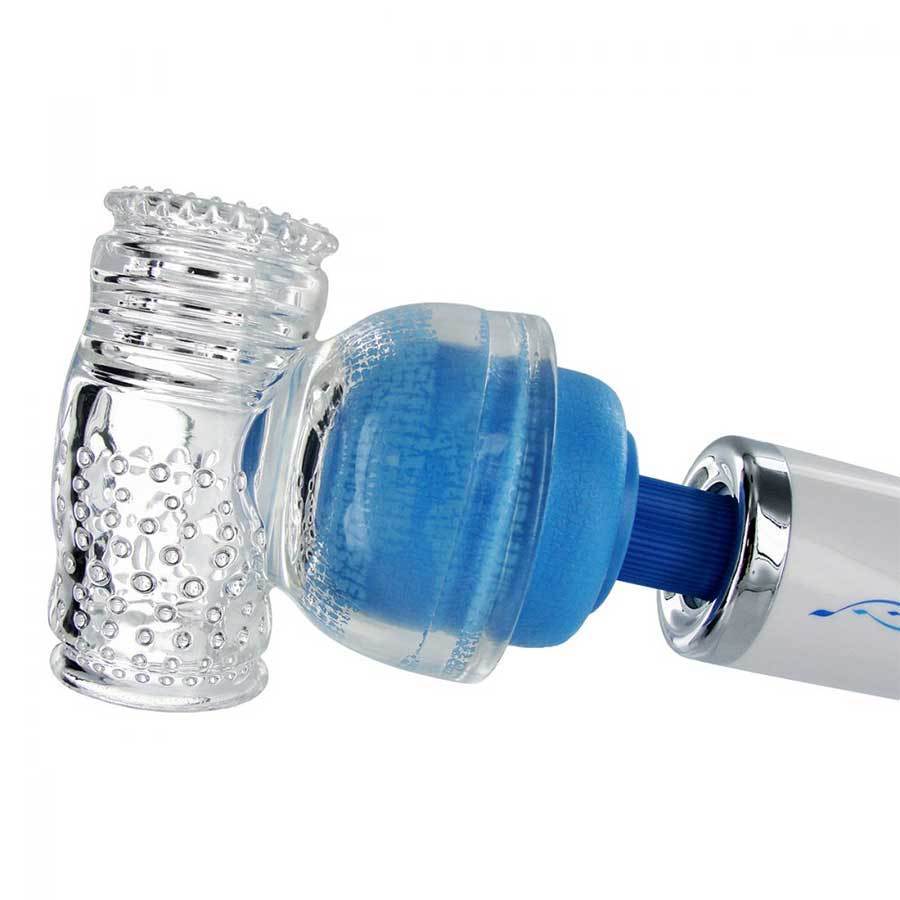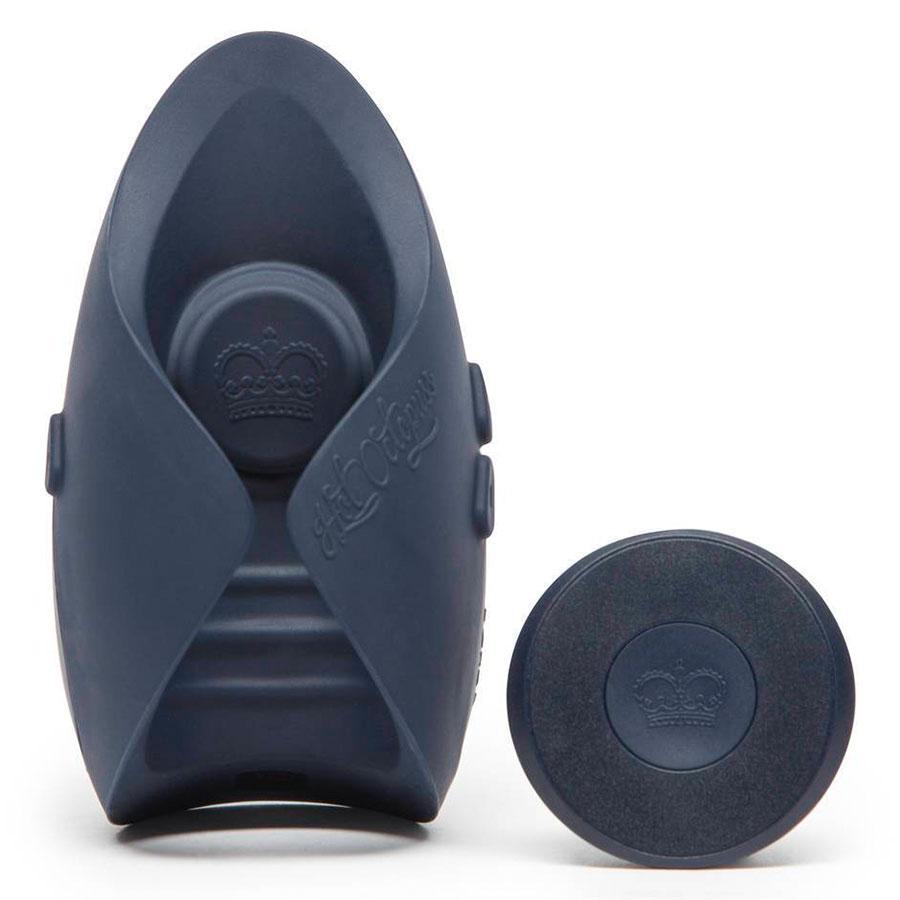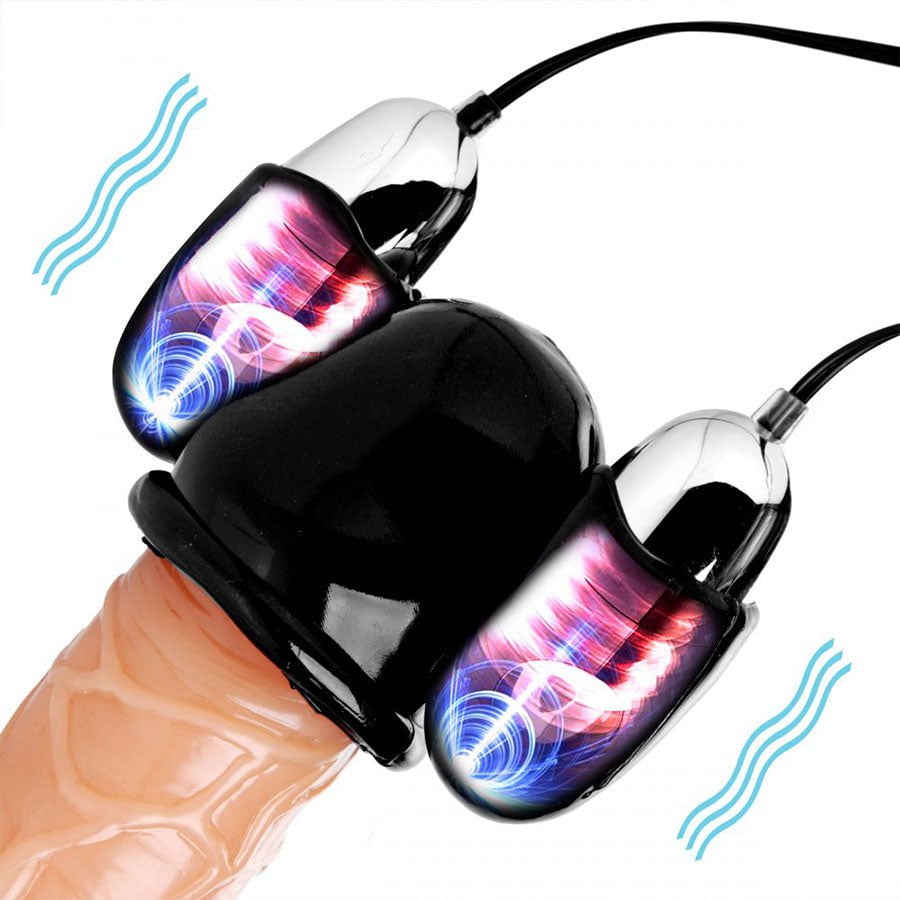Listen to an audio summary
If your penis isn't feeling as sensitive as you'd like it to be, don't worry - there are a good number of at-home solutions that can bring some sensitivity back. By making changes to your masturbation techniques and sexual activities with a partner, altering your sitting habits, managing medical conditions, and maintaining your physical and mental health, you should be able to regain some lost sensitivity.
In this article, we've gone over all of those factors in more detail, providing some specific advice to anyone struggling with a lack of penile sensitivity. While at-home solutions can give great results, there are still certain scenarios in which you may benefit more from a visit to a doctor - so we've briefly gone over those too.
A loss of penis sensitivity can be frustrating, but most of the time getting it back to where you want it to be is entirely possible - whether you do it at home or with medical assistance.
Important: Reduced Sensitivity vs Numbness
Reduced penile sensitivity is not the same thing as penile numbness. While both can result in fewer sensations, reduced sensitivity can generally be treated at home through lifestyle adjustments, and changes to sexual activity. Penile numbness, on the other hand, is often accompanied by a tingling feeling (pins and needles), or even outright erectile dysfunction - and it's a lot more likely to require medical assistance to correct.

Different Ways to Increase Penile Sensitivity
Penile sensitivity is something that can usually be increased at home through adjustments to your behavior during day-to-day life and in the bedroom. In this article, we'll be going over the following methods of boosting the sensitivity of your penis:
- Think About Masturbation Techniques
- Make Some Sexual Activity Adjustments
- Consider Some Healthy Lifestyle Changes
- Speaking to a Healthcare Professional
- Don't Neglect Your Mental Well-Being
- Keep Your Penis Healthy
Masturbation technique, sexual activity, lifestyle factors, your physical and mental health, and the health of your penis can all contribute to reducing its sensitivity. By evaluating each of these factors, you'll be able to figure out if you can make changes somewhere to help get its sensitivity back to where it should be.
1. Think About Masturbation Techniques
Both a vigorous masturbation style and high-frequency masturbation are listed in a 2018 journal article as two factors that may contribute to delayed ejaculation and the inability to ejaculate at all. While "death grip syndrome" isn't necessarily backed up by any research, there does seem to be a correlation between how aggressive masturbation, decreased sensitivity, and fewer orgasms.
Thankfully, by loosening your grip, making sure to masturbate differently sometimes, and by taking it easy, and leaving your penis alone for a while, you can restore some of that lost sensitivity over time.
Use a looser grip
Gripping your penis tightly during masturbation can lead you to derive less pleasure from the sensations. This can cause a cycle in which you grip harder and harder in an attempt to compensate for the loss of sensitivity, only to decrease sensitivity even further. By loosening your grip, your body will acclimatize to a lower level of friction, improving your sensitivity.
Switch up techniques
The article we linked to earlier also notes how studies have shown a correlation between men with idiosyncratic (meaning specific or individual) masturbation techniques and men who suffer from delayed orgasms. If you only use a specific grip or only use a particular toy, this can contribute to decreased sensitivity. Varying your masturbation techniques and switching up your grip and toys can help get sensitivity back.
Take breaks
Masturbating too frequently can also cause you to get used to the stimulation, resulting in less sensitivity. If you masturbate multiple times every day, this probably isn't giving your body adequate time to miss the feeling - we'd recommend cutting down to once a day at most. While you can't necessarily masturbate "too much", if you feel like you've become less sensitive, taking longer breaks may help you out.

2. Make Some Sexual Activity Adjustments
Much like with masturbation, the specific ways you have sex can have a negative effect on the sensitivity of your penis. Factors such as sex positions, how much lube you use, how exactly your partner's legs are positioned, and which orifices you're using can all alter the amount of friction your penis is receiving, changing the sensations.
Change sexual positions
Repeatedly using a specific sex position over and over, every time you have sex, may be correlated with decreased penile sensitivity - just apply the principle we mentioned earlier involving idiosyncratic masturbation techniques. Additionally, some sex positions might not be applying enough friction for you to get up. Switching positions allows you to experience all kinds of different sensations, many of which provide more friction, helping boost your sensitivity.
Reduce lube usage
Lube reduces the amount of friction experienced during sex - that's the whole reason you use it. However, less friction can sometimes lead to less sensation, especially if your penis is a bit desensitized. By using a little less lube (or even by switching to water-based lube if you're used to silicone-based lube), your sex will be less slippery due to the increased friction, but you may be able to feel more sensation.
Partner leg positioning
This is a similar point to changing which sex positions you make use of, but you can apply it to the positions you're used to. Instead of changing positions completely, changing the position of your partner's legs can be an easy first step. For example, if you usually do missionary with your partner's legs on the outside of your legs, try instead with your legs outside of theirs. This can alter the amount of friction and make familiar positions more pleasurable.
Try anal sex
The anus is a lot tighter than the vagina, so it stands to reason that if you're somewhat desensitized to the friction provided form vaginal sex, anal sex might allow you to experience more pleasurable stimulation due to the increase in friction. We wouldn't recommend entirely switching to anal - this could lead to something similar to death grip syndrome and might also leave your partner quite sore - but mixing it up every now and then may be a great help.
3. Consider Some Lifestyle Activity Changes
There are lifestyle changes you can make that can have a surprising effect on the sensitivity of your penis; both recommendations we have here are actually related to how you sit in certain scenarios. The way you sit when you're relaxing as well as how often you ride a bicycle (and the specifics of your bike's seat) can both be changed for the better to prevent your penis from losing sensitivity.
Reduce cycling
When you sit on bike seats, the specific position of the seat between your legs puts quite a lot of pressure on your perineum - the area between your butt and balls. This can cause compression of the pudendal nerve - a vital nerve for sexual function. As such, cycling too often, for too long, or with a seat that lacks support can leave your penis less sensitive, so try taking a break, going on shorter bike rides, or obtaining a more supportive bike seat.
Adjust sitting position
Bicycle seats aren't the only cause of compressed pudendal nerves; the way you sit down when relaxing can also result in sexual dysfunction. Certain sitting positions - in particular those in which your butt isn't supporting the majority of your weight - put extra pressure on your perineum. A good tell of a sitting position that might cause issues is if you're experiencing any abdominal pain. Try to sit in a way in which you can feel more pressure on your butt than your perineum - and get up for a little walk around every half hour or so.
4. Speaking to a Healthcare Professional
The way certain health conditions affect your body can have a knock-on effect on your penis, potentially reducing its sensitivity and causing issues with erectile function. Any conditions that affect your hormones, blood flow, and nerves have the capability of negatively impacting your penis in this way.
Speaking to a healthcare professional can help you ensure your hormone levels are where they should be, any potential causes of ED are addressed, any medical conditions are being managed, and you aren't taking any medications that interfere with your penis' ability to feel and function.
Testosterone levels check
Low testosterone (also known as hypogonadism) is linked to a variety of sexual dysfunctions including ED, reduced sex drive, delayed orgasm, and decreased penile sensation. A healthcare professional will be able to check your testosterone levels to test whether you'd be a good candidate for testosterone replacement therapy (TRT). TRT is usually a long-term treatment but it can effectively improve penile function if your testosterone levels are causing problems.
Seek treatment for ED
Studies have shown that men with erectile dysfunction are more likely to experience reduced penis sensitivity, as sensitivity plays an important role in arousal and getting an erection. If your penis has lost sensitivity, you may struggle to get hard or struggle to orgasm even if you can get hard. Thankfully there are lots of treatments for ED, including medications such as sildenafil (Viagra) and tadalafil (Cialis), as well as taking steps to improve your overall health, which has a significant knock-on effect on erectile function.
Manage medical conditions
Metabolic and cardiovascular conditions such as diabetes, obesity, artery disease, and high blood pressure can damage blood vessels, affecting blood flow and causing ED which can in turn cause decreased sensitivity in your penis. Conditions such as multiple sclerosis can cause nerve damage, causing ED and, again, reducing the sensitivity of your penis. Specific penile conditions like Peyronie's disease, in which there is a build-up of scar tissue, can do the same. Managing these conditions can restore some sensitivity, even if they aren't cured.
Adjust medications
Reduced penis sensitivity and low libido are side effects of a number of commonly used medications. Antidepressants (usually selective serotonin reuptake inhibitors), opioid painkillers, and certain antipsychotic medications can all leave you struggling to achieve and maintain an erection, and lacking sensitivity in your penis. If you're taking a medication and you think it's affecting your penis, tell your doctor - they should be able to suggest an alternative that can help you get some sensitivity back.
5. Don't Neglect Your Mental Well-Being
Mental health is just as important as physical health when it comes to keeping your penis working as it should and maintaining/improving its sensitivity. Making sure your stress and anxiety are kept in check is a must. If your mental health is seriously affecting your life, we would strongly recommend counseling or therapy - both for your general well-being and for the sake of your penis.
Manage stress and anxiety
Stress and anxiety are strongly linked to erectile dysfunction and in turn, decreased libido and penile sensitivity. Methods including (but not limited to) exercise, maintaining a healthy diet, getting enough sleep and relaxation, and practicing mindfulness are all tried and tested ways of reducing day-to-day stress; all of them can help prevent penile issues and can reduce their severity if you already have them. Bathing in particular is good for reducing stress and improving your circulation - both of which are great for your penis.
Consider therapy
If your stress and anxiety are beginning to have more of a negative effect on your life (or if you're dealing with any other mental health conditions - including depression) therapy can be a good solution. This is especially true if you've tried the abovementioned methods but they haven't been of much use. Therapy (often in the form of cognitive behavioral therapy) can be a massive help if your mental health takes a turn for the worse, and it can also be beneficial for your penis and its sensitivity.
6. Keep Your Penis Healthy
The health of your penis is somewhat dictated by your health in general. Maintaining a healthy lifestyle by getting a good amount of exercise, eating a balanced diet, getting enough sleep, and avoiding harmful substances are all great for your overall health - but they can also improve your sexual function and help restore lost penis sensitivity.
Furthermore, if you're interested in a lifestyle change that is directly related to your penis, we'd recommend using sex toys. They provide varied sensations and can help ward off death grip syndrome.
Maintain a healthy lifestyle
Exercise is linked to improving penile function. A healthy diet is also linked to improving penile function. Getting enough sleep and managing sleep disorders is also linked to improving penile function. Avoiding smoking and cutting down on alcohol consumption are both, as you might've guessed, linked to improving penile function.
All these factors are essential for maintaining good general health as they help you maintain a healthy body weight, keep your blood pressure down, and help your body manage testosterone levels. This is why they have the bonus of boosting the health of your penis - which often has the knock-on effect of improving its sensitivity.
Use sex toys
Sex toys, especially those that use vibrations for stimulation, can help provide sensations that'll get you off even if you have lost some sensitivity. Furthermore, toys can improve your sensitivity in various ways. Some toys are designed to be much more realistic than using your hand. This, alongside the fact that they don't get tighter unless you specifically make them tighter, helps prevent death grip syndrome.
Additionally, toys can provide a wide range of sensations, improving your sensitivity similarly to switching up your hand masturbation technique or using more sex positions.
When to Seek Medical Advice
If you've tried to take some at-home steps to improve your penis sensitivity but you haven't seen any results, the next step may be to take your issue to a medical professional. As long as your life isn't being significantly negatively affected by your reduced penile sensitivity, we'd suggest giving some of the methods we mentioned above a good try for at least a few weeks if you can. If you're struggling or just would like some extra help, we'd recommend mentioning visiting a doctor.
Of course, if you're concerned your reduced sensitivity may be related to a physical or mental health condition, it might be a good idea to visit a doctor a little sooner.
We'd recommend visiting them if you have any additional symptoms alongside reduced sensitivity, including pins and needles, difficulty achieving or maintaining an erection, or if you're experiencing any pain. We'd also suggest visiting them if your mood is deteriorating, or if you're struggling with an addiction.
Though visiting a doctor can be nerve-wracking, you need to be as frank and honest as possible so they can fully understand your issues - this will make it easier for them to help you, meaning you're more likely to get the results you want. They're there to help you so there's no need to be nervous - chances are they'll have dealt with plenty of similar issues in their time.
Increase Penis Sensitivity: Summary
Realizing your penis is less sensitive than it could be - or less sensitive than it was in the past - can be disappointing. While it's not necessarily as serious an issue as penile numbness, a loss of sensitivity can still leave you unfulfilled and frustrated. Luckily, there are lots of things you can do to help get some sensitivity back.
When it comes to sex, altering your masturbation habits, introducing sex toys, and adjusting the ways you have sex with a partner can bring back sensitivity by providing varied friction and sensations and reconditioning your penis to pleasure. Maintaining both your physical and mental health is important too - this is vital for preventing sexual dysfunctions such as ED, which can lead to reduced sensitivity.
If you don't get the results you want from the at-home methods to increase the sensitivity of your penis, you might need to visit a doctor.
You should also visit a doctor if you're experiencing any pain, pins and needles, or symptoms of ED. Through either at-home remedies or by receiving help from a doctor in more severe cases, you'll be able to boost the sensitivity of your penis.
Enhance Your Penis Health and Knowledge
Explore our in-depth guides on maintaining a healthy penis:




